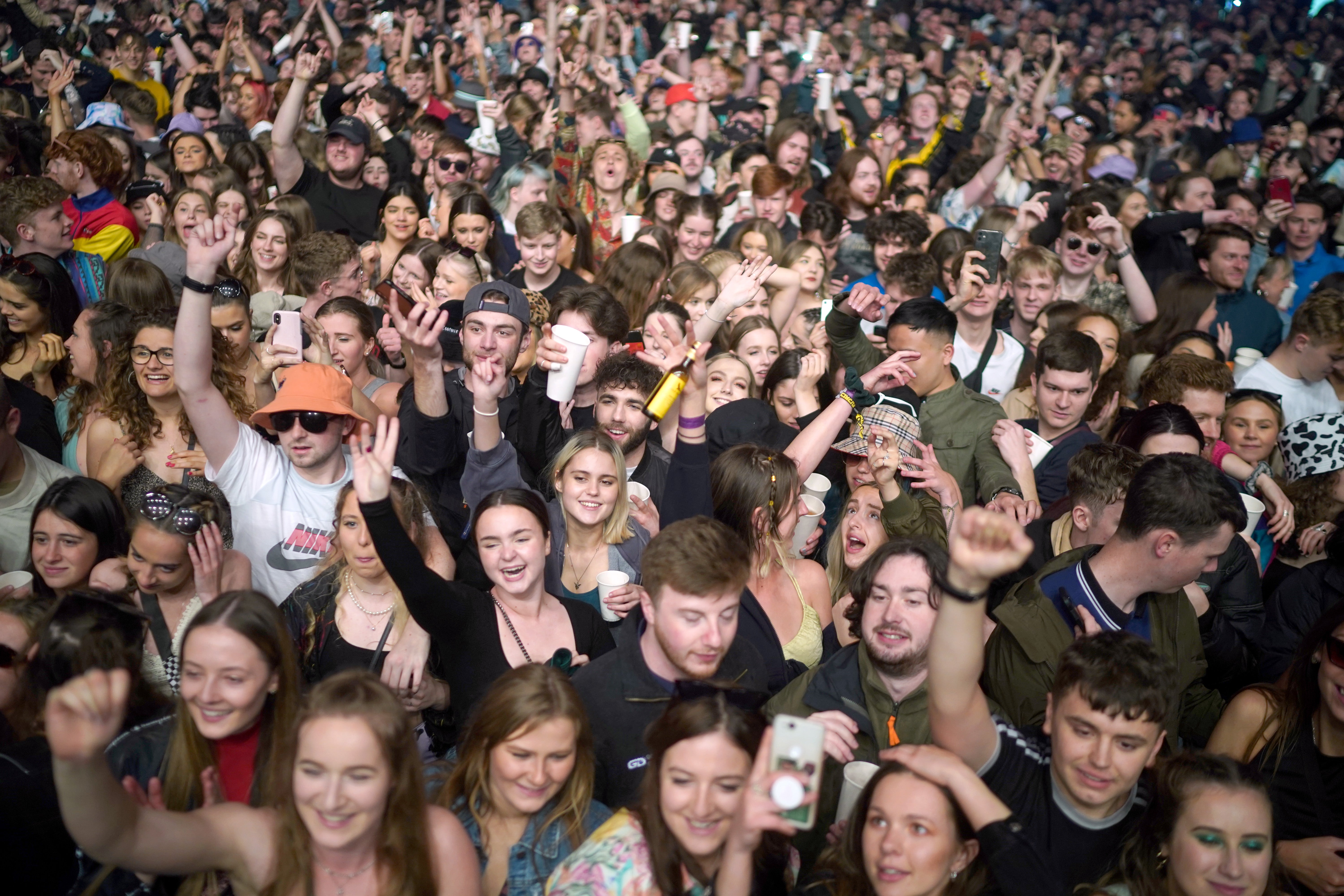I’m one of many women harassed at gigs – I’m fearful for the return of live music
We need harassers to stop harassing. Let us all enjoy the magic of live music as it returns after 18 months devoid of circle pits and bouncing dance floors


There is nothing that makes me feel more alive than the reverberation of live music as it travels from the soles of my feet and pulses through my body. The feeling of being right in the thick of it, with hundreds of other people equally captivated by the band on stage, is second to none. Right down at the front, mashed up against each other. Sweating and dancing. Alive.
But as any woman or person of marginalised gender will know, these situations often leave us open to sexual harassment or assault.
This was highlighted in a recent study from Safe Spaces Now, an initiative from UN women which aims to make the UK’s public spaces safer for women and girls, which found that 40 per cent of women under 40 have been harassed at a live music event.
As a 35-year-old woman who has been going to gigs and festivals since I was 14, I wasn’t shocked to read this statistic. Not even a little bit. From my first ever T in the Park, back in 2002, I know that by putting myself into that environment, I am putting myself at risk.
I’ve experienced harassment at live music events countless times, and I’ve witnessed it happen to others: groping and grabbing; following and flashing; inappropriate comments; creepy hands on waists and even worse.
So, it’s not surprising to read that only 3 per cent of women aged 18-24 haven’t been harassed in public spaces including nightclubs, pubs, theatres, public transport, gyms, museums and art galleries. It happens walking to Greggs to get a sausage roll (and on the way back home, eating said sausage roll – I just want to have a sausage roll in peace). Sadly, it’s indicative of most social spaces, although the rowdiness, alcohol and closeness of the crowd at live gigs can be the type of environment that makes it a hot spot.
I often feel personally responsible for evaluating public spaces, as a woman. That’s where live music can be a strange one. It has an element of uniqueness in weighing up risk versus reward. I’ve never been a fan of seating at gigs and I’m very much a right-down-the-front, in the frenzied tangle of the mosh pit kinda gal. I feel like a bystander at the back, away from the action.
But by choosing to be down the front, I’m aware that I’m putting myself in a potentially vulnerable position. Is it my fault for putting myself in that situation if someone tries to touch me?
No, of course not – but this is the victim-blaming question I find myself asking, that is deeply ingrained from a young age.
Crowds at gigs are mostly lovely. I’ve met incredible people at festivals and gigs in the 20 years I’ve been going to them. I’ve been blind drunk and helped back to my tent by two lovely boys from Newcastle. I’ve had a guy pretend to be my boyfriend to stop a man chewing his face off from licking mine. I’ve had laughs, made friendships and bonded with countless beautiful strangers over nothing more than knowing the same songs.
But, as the recent statistics prove, harassment does happen a lot – and we can’t ignore that.
As gigs and festivals return – with Reading and Leeds in full flow – it feels like the perfect time to reassess these statistics.
I’ve got lots of gigs lined up over the coming weeks. I can’t wait, but I also feel nervous. Covid-19 has meant that physical contact has been limited, as has putting yourself in scenarios where you might be harassed, groped or assaulted.
Claire Barnett, executive director of UN Women UK explains that I’m not alone in this nervousness: “Women and girls have been telling us that this is marring their excitement about getting back to the exhilaration of live music after so long. This has to be a moment of joy, not fear.
“We think the return to public spaces is a really good opportunity to reset our expectations and imagine a better future,” she continues. “If there was ever a time to use a major societal shift to demand an end to sexual harassment once and for all, this is it.”
This month, UN Women’s Safe Spaces Initiative released an open letter to the industry, calling for change from within. They’re working to improve things on a physical level – including venue and festival layout, as well as using behavioural science to improve the way we treat each other at live music events and helping people to know how to “safely intervene and prevent harassment”.
But most of all, we need harassers to stop harassing. Let us all enjoy the magic of live music as it returns. I dream of a day when I can crowd-surf in peace, free from the threat of sexual assault.

Join our commenting forum
Join thought-provoking conversations, follow other Independent readers and see their replies